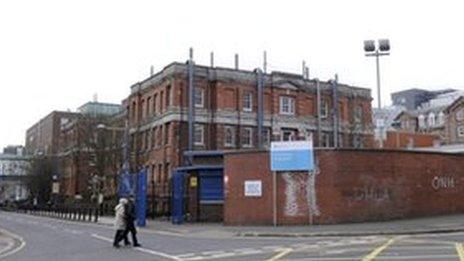Most of £150m critical care building remains closed
- Published
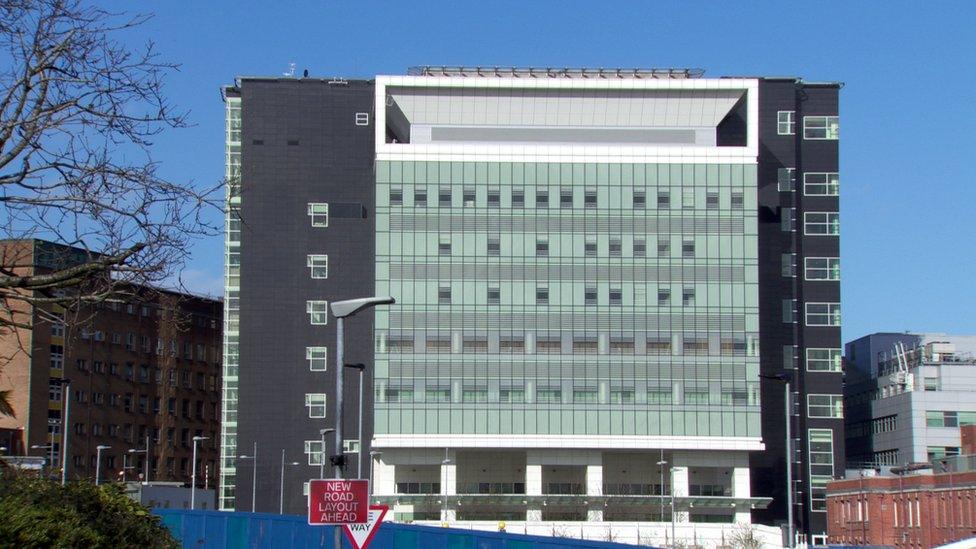
The £150m building was due to open in 2012
A state-of-the art £150m building in the grounds of Belfast's Royal Victoria Hospital remains mainly closed to the public five years after it was to open.
Ten out of the 12 floors of the critical care building, due to open in 2012, await patients and staff to fill their theatres, rooms and corridors.
New building contractors have been brought in to do repairs on 10 floors.
Asked about the delay, a Health and Social Care Trust said spokesperson said they had been faced with problems.
"The main contractor for the project encountered defects in the sealed water systems prior to the anticipated handover date and the ensuing remedial works delayed completion," they said.
"Subsequent to this delay additional work was required by the trust to bring the facility into operation."
The BBC understands that millions of pounds in additional funding are required to bring the whole building up to standard and fit for purpose.
Garrett Martin from the RCN said the five year delay was "shocking"
The emergency department, which is housed on the first two floors, had to open in 2015 in order to cope with winter pressures.
Unions and community representatives have told the BBC that the delays are shocking and unacceptable.
According to a number of health unions, it has taken so long for the whole building to open that a lot of people have forgotten it exists.
The deputy director of the Royal College of Nursing, Garrett Martin, said the five year delay was "unacceptable".
"There are a lot of questions that remain unanswered as to why there is such a delay, that money has been spent replacing equipment which is now out of date and there needs to be much more openness and transparency around all of this," he said.
The original contractors for the building were McLaughlin and Harvey. When the BBC contacted them with a series of questions they replied they had "no comment".
An internal report by the new contractors, Killowen Contracts LTC and Michael Nugent Ltd - seen by the BBC - highlights claims that new problems were being discovered on a regular basis.
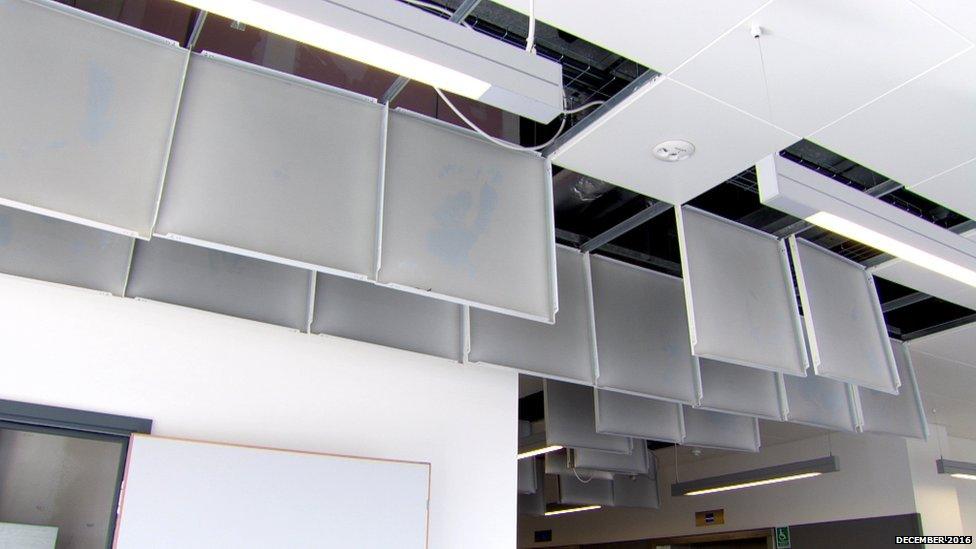
Paint work and ceilings on almost all of the 10 floors have had to be either fixed or replaced
The progress report was shared among the Belfast Health and Social Care Trust (BHSCT), building contractors and the Department of Health in December 2016.
The internal report from the current contractor also says: "We are very conscious that mistakes cannot be repeated and therefore quality of workmanship is our first priority and while we will continue to strive to complete the works at the earliest possible date quality will take precedence."
The report claims there were numerous problems including plumbing, waste and electrical systems.
NICVA's Seamus McAleavey said the delay was a 'tremendous waste of money'
However, it is important to note that this report comes from the current contractor and some of the matters highlighted within it are the subject of legal disputes.
Also, both the original contractor and a subcontractor have themselves claimed that they regularly encountered problems with the building's plan.
Health care staff and health unions are questioning both the delay and the additional expense to the public purse.
In fact the BBC has learned that the delay has meant some of the newly purchased equipment in 2012 has had to be replaced. This includes oxygen hoses used in theatres as they have a limited shelf life.
Also paint work and ceilings on almost all of the 10 floors have had to be either fixed or replaced.
'Things need to be fixed'
The chief executive of NICVA - the Northern Ireland Council of Voluntary Action - has asked who is being held to account.
"In a time when we are talking about transforming health, yet we have £150m that has done nothing, costing us money to replace parts of this building and which is not being brought in to public use," Seamus McAleavey said.
"So clearly we need to know who is responsible and get to grips with it. Things can go wrong and we accept that - but they need to be fixed and five years is far too long."
I have seen pictures from last December which show corridors and rooms dismantled as repairs continue.
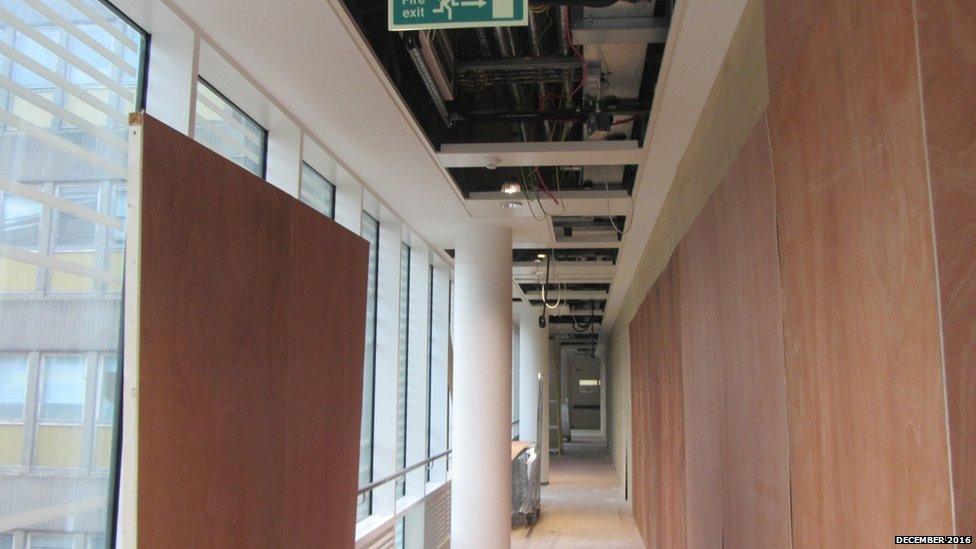
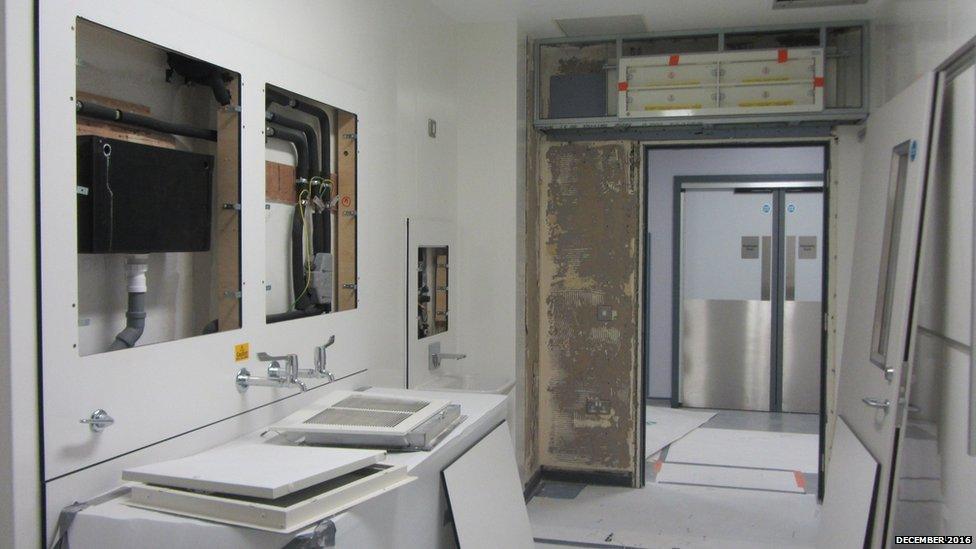
Air ventilation plants were ripped out; toilets and waste bins replaced on almost all of the 10 floors; the buildings foul waste systems also had to be replaced. Generators were also found to be overheating.
The new critical care hospital which cost around £150m has had a history of problems. It is the responsibility of the Belfast Health Trust.
The BBC understands that legal proceedings between various contractors and the Belfast Health and Social Care Trust have dominated throughout almost the duration of the build.
As McLaughlin and Harvey neared the completion of the building in 2013 as reported by the BBC they discovered a serious problem with corroded pipework.
They finally handed the building over the trust in the spring of 2015.
Proceedings have been acrimonious with different parties blaming others for failure and complications. A separate insurance case at Belfast High Court in 2016 heard that McLaughlin and Harvey spent more than £9.8m of its own money to rectify the problems they say they encountered. The case was settled out of court.
Construction problems
Sources who have spoken to the BBC say they can't understand how a building with so many construction problems was allowed to open its emergency department in the first place.
The Belfast Health Trust has confirmed that a number of construction problems have delayed completion.
In response to an FOI request the health trust said that additional works required by the trust to bring the facilities in line with current legislation and standard have been undertaken.
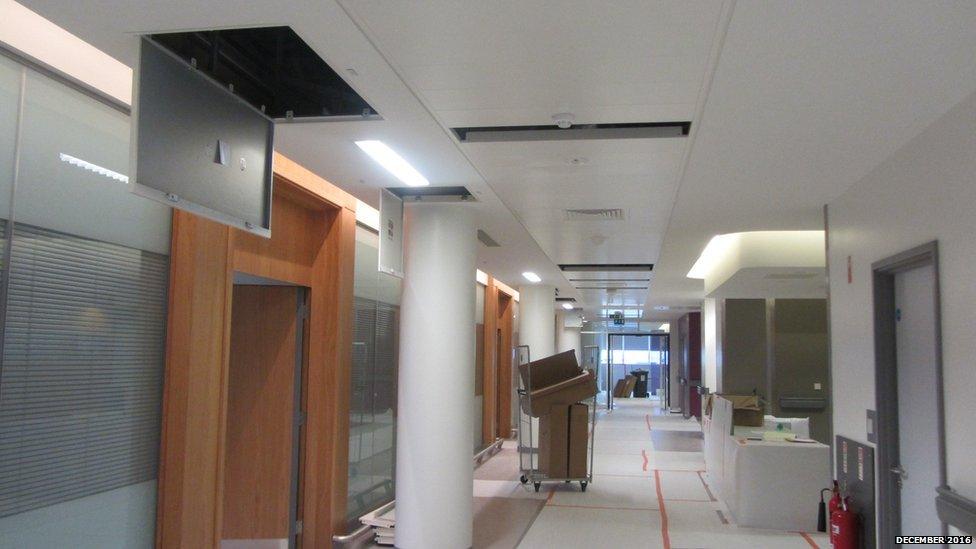
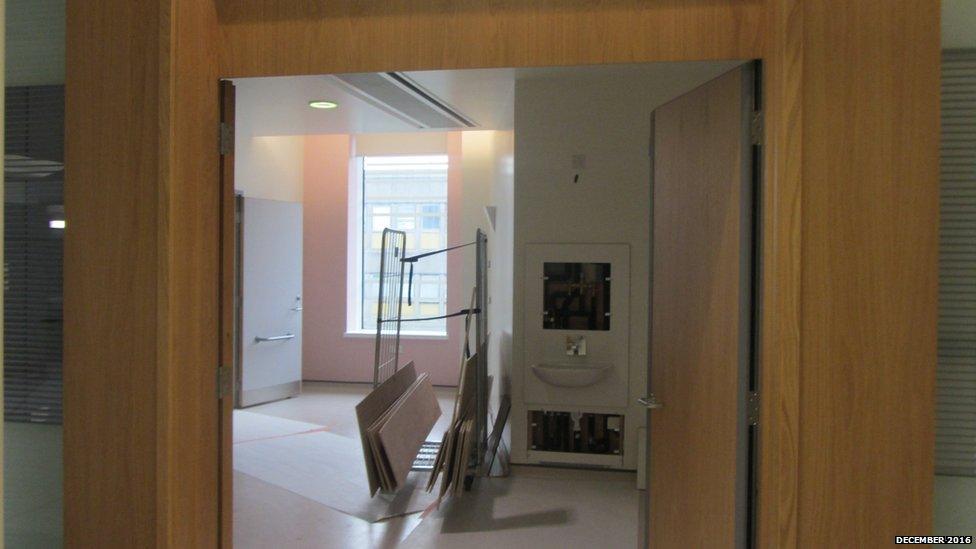
The trust also confirmed that due to the long period of time from initial design to completion further additional work has been required.
When asked why the BHSCT accepted the building from contractors with so many known defects, the trust said that all construction contracts contain a procedure of identification and remediation of defects in a building post-handover.
The Belfast trust said that it is currently engaged in a programme to clinically commission the critical care building including the recruitment and training of nursing and medical staff. This programme runs in tandem with the works being completed with the building.
A new deadline for the opening of theatres and the intensive care unit is now the latter part of 2017.
It's important to stress that any additional spend will not impact on patient care and that the funding for the building came out of capital spend.
- Published24 March 2015
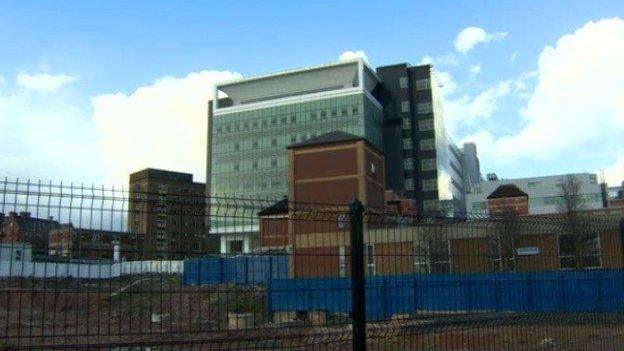
- Published31 July 2013
